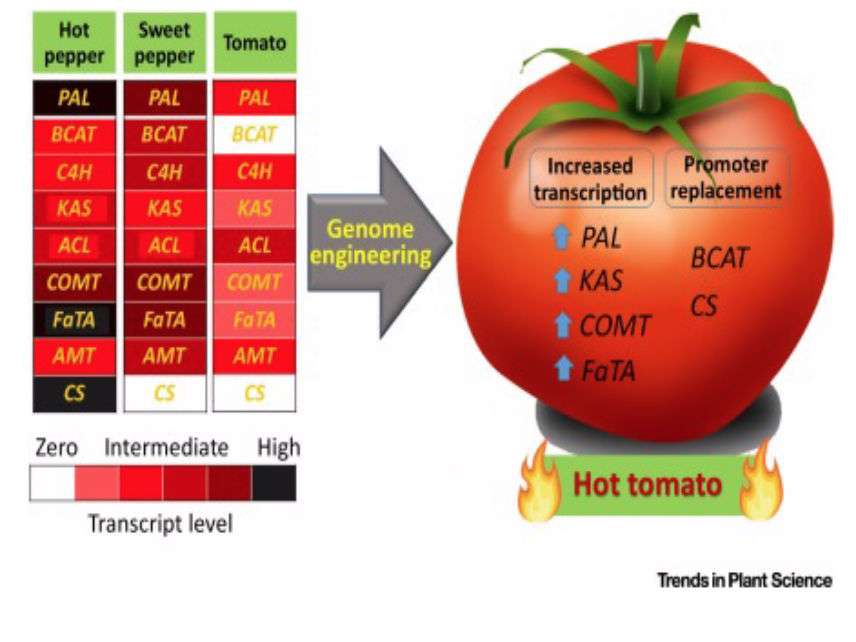How Can I Preorder a Crate of Spicy Tomatoes?
Revving up pepper hotness in tomatoes using CRISPR genome-editing

The spaghetti sauce recipe from Chef Anthony Bourdain uses 20 plum tomatoes and a pinch of crushed red peppers (personally I would prefer much more than a pinch of pepper). Now biotech researchers are suggesting that cooks could skip a step and simply use tomatoes engineered to produce their own pepper spice.
The ancestors of tomatoes and chili peppers went down their separate evolutionary paths nearly 20 million years ago. Derived from tiny pea-sized berries, tomatoes became milder as Native American farmers in South and Central America began domesticating tomatoes more than 8,000 years ago. Meanwhile Native American horticulturalists in Mexico 6,000 years ago turned wild bird peppers into domesticated varieties that continued to produce capsaicins (the compounds that give peppers their delicious hotness).
Now a team of researchers led by Agustin Zsögön, a plant biologist at the Federal University of Viçosa in Brazil, reports in the journal Trends in Plant Science that the genes for producing spicy capsaicin are dormant in tomatoes and could likely be reawakened via biotechnology. Instead of splicing new genes into tomatoes, researchers aim at activating existing genes in the plants. Various techniques that might be used to jump start capsaicin synthesis include using CRISPR genome-editing to modify genetic promoter sequences to turn on and turn up the dormant genes for capsaicin production in tomatoes.
Their main goal is not to get "hot" tomatoes into the produce aisle at your local grocery, but instead to use tomatoes to mass produce capsaicins for pharmaceutical purposes and/or as a pest deterrent. They note that yields of hot peppers seldom exceed 3 tons per hectare in about 4–5 months of growing, whereas is not uncommon to reach 110 tons per hectare for tomatoes during a 120-day cropping cycle.
The good news is that the U.S. Department of Agriculture has declared that it will not generally regulate genome-edited crop varieties. Therefore spicy tomatoes and hundreds of other genome-edited crop varieties now under development should be able to get to market sooner by escaping the ridiculously anti-scientific regulatory system that has so far slowed and stymied the development of beneficial biotech crops. I hope to dine on a "hot" tomato and melted cheese sandwich some day soon.


Show Comments (30)